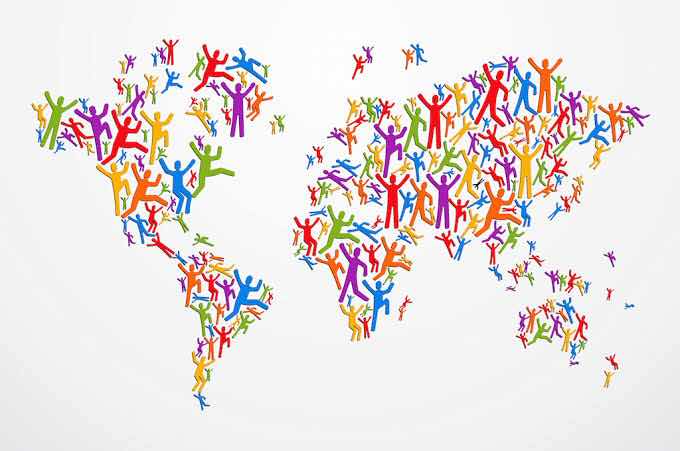The 20th Century saw the development of a number of business models.....
The Gillette model - “the bait and hook” model, where customers are lured in with a low-cost initial product (the bait: a free razor) and then forced to buy endless refills (the hook: blade refills).
- The “franchise models” pioneered by McDonald’s.
- The “department stores” - David Jones
- The “hypermarkets” like Walmart, Metcash, Coles and Myers and Aldis and
- The shopping centres - “westfields” ,
The internet was a game changer with business model reinvention. With bitcoin and blockchain undercut existing “trusted third party” financial models, and crowdfunding and ICOs upend the traditional ways capital is raised.
John Hagel shared a great article by Peter H. Diamandis, MD of the 7 Business Models to Rule the Decade
Here they are :-
(1) The Crowd Economy:

Crowdsourcing, crowdfunding, ICOs, leveraged assets, and staff-on-demand—essentially, all the developments that leverage the billions of people already online and the billions coming online.
All have revolutionized the way we do business.
Just consider leveraged assets, like Uber’s vehicles and Airbnb’s rooms, which have allowed companies to scale at speed.
These crowd economy models also lean on staff-on-demand, which provide a company with the agility needed to adapt to a rapidly changing environment.
And it’s everything from micro-task laborers behind Amazon’s Mechanical Turk on the low end, to Kaggle’s data scientist-on-demand services on the high end.
Example: Airbnb has become the largest “hotel chain” in the world, yet it doesn’t own a single hotel room. Instead, it leverages (that is, rents out) the assets (spare bedrooms) of the crowd, with more than 6 million rooms, flats, and houses in over 81,000 cities across the globe.
(2) The Free/Data Economy:

This is the platform version of the “bait and hook” model, essentially baiting the customer with free access to a cool service and then making money off the data gathered about that customer. It also includes all the developments spurred by the big data revolution, which is allowing us to exploit micro-demographics like never before.
Example: Facebook, Google, Twitter—there’s a reason this model has transformed dorm room startups into global superpowers. Google’s search queries per day have risen from 500,000 in 1999, to 200 million in 2004, to 3 billion in 2011, to 5.6 billion today. While more users are becoming aware of the valuable data they exchange in return for Google’s “free” search service, this tried-and-true model will likely continue to succeed in the 2020s.
(3) The Smartness Economy:

In the late 1800s, if you wanted a good idea for a new business, all you needed was to take an existing tool, say a drill or a washboard, and add electricity to it—thus creating a power drill or a washing machine.
In the 2020s, AI will be the electricity. In other words, take any existing tool, and add a layer of smartness. So cell phones became smartphones and stereo speakers became smart speakers and cars become autonomous vehicles.
Example: We all know the big names incorporating AI into their business models—from Amazon to Salesforce. But more AI startups arise each day: 965 AI-related companies in the US raised $13.5 billion in venture capital through the first 9 months of last year, according to the National Venture Capital Association.
The most highly valued of them all is Nuro, a driverless grocery delivery service valued at $2.7 billion. Expect AI to continue transforming most businesses in the 2020s.
(4) Closed-Loop Economies:

In nature, nothing is ever wasted. The detritus of one species always becomes the foundation for the survival of another species. Human attempts to mimic these entirely waste-free systems have been dubbed “biomimicry” (if you’re talking about designing a new kind of product) or “cradle-to-cradle” (if you’re talking about designing a new kind of city) or, more simply, “closed-loop economies.” These models will grow increasingly prevalent with the rise of environmentally-conscious consumers and the cost benefits of closed-loop systems.
Example: The Plastic Bank, founded in 2013, allows anyone to pick up waste plastic and drop it off at a “plastic bank.” The collector is then paid for the “trash” in anything from cash to WiFi time, while the plastic bank sorts the material and sells it to the appropriate recycler—thus closing an open loop in the life cycle of plastic.
(5) Decentralized Autonomous Organizations (DAOs):

At the convergence of blockchain and AI sits a radically new kind of company—one with no employees, no bosses, and nonstop production.
A set of pre-programmed rules determines how the company operates, and computers do the rest. A fleet of autonomous taxis, for instance, with a blockchain-backed smart contracts layer, could run itself 24-7, including driving to the repair shop for maintenance, without any human involvement.
Example: While DAOs are just beginning to emerge, the platform DAOstack is working to provide these businesses with tools for success, including reliable crypto-economic incentives and decentralized governance protocols. DAOstack aims to create businesses where the only external influence is the customer.
(6) Multiple World Models:

We no longer live in only one place. We have real-world personae and online personae, and this delocalized existence is only going to expand. With the rise of augmented reality and virtual reality, we’re introducing more layers to this equation. You’ll have avatars for work and avatars for play, and all of these versions of ourselves are opportunities for new businesses.
Example: Second Life, the very first virtual world created in 2003, gave rise to a multimillion-dollar economy. People were paying other people to design digital clothes and digital houses for their digital avatars. Every time we add a new layer to the digital strata, we’re also adding an entire economy built upon that layer, meaning we are now conducting our business in multiple worlds at once.
(7) Transformation Economy:

The Experience Economy was about the sharing of experiences—so Starbucks went from being a coffee franchise to a “third place.” That is, neither home nor work, but a “third place” in which to live your life. Buying a cup of coffee became an experience, a caffeinated theme park of sorts. The next iteration of this idea is the Transformation Economy, where you’re not just paying for an experience, you’re paying to have your life transformed by this experience.
Example: Early versions of this model can be seen in the rise of “transformational festivals” like Burning Man, or fitness companies like CrossFit, where the experience is generally bad (you work out in old warehouses), but the transformation is great (the person you become after three months of working out in those warehouses).
Consumers are no longer searching for merely pleasurable experiences—they are looking for challenges that transform.
Final Thoughts
For business to survive and thrive and to unlock the next wave of growth in the next 20 years - companies must adopt some of the above models..... to be better, cheaper and faster !!!
Better meaning new business models do what all business models do—solve problems for people in the real world better than anyone else.
Cheaper is obvious. With demonetization running rampant, customers—and that means all of us—are expecting more for less.
But the real shift is the final shift: faster.
New business models are no longer forces for stability and security. To compete in today’s accelerated climate, these models are designed for speed and agility.
Parts of this article originally appeared on diamandis.com. Read the original article here.
